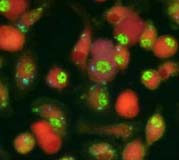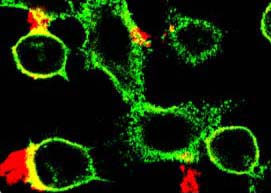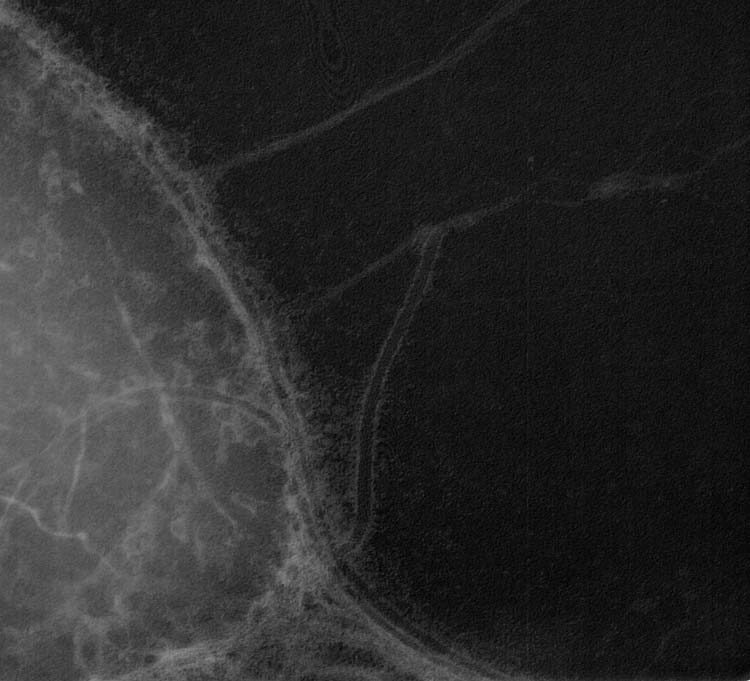|
|
|
|
Microbiology, Microbial Pathogenesis and Immunology Specialization
 The
Microbiology, Microbial Pathogenesis and Immunology specialization
(formerly the graduate program in Microbiology (MICB)) is an integral
part of the new graduate program of Cell Biology and Molecular Genetics
(CBMG). All prospective students interested in this area of study
should fill out the application form by entering CBMG as the graduate
program and listing Microbiology, Microbial Pathogenesis, or Immunology
as the specialization. The
Microbiology, Microbial Pathogenesis and Immunology specialization
(formerly the graduate program in Microbiology (MICB)) is an integral
part of the new graduate program of Cell Biology and Molecular Genetics
(CBMG). All prospective students interested in this area of study
should fill out the application form by entering CBMG as the graduate
program and listing Microbiology, Microbial Pathogenesis, or Immunology
as the specialization.
The Microbiology, Microbial Pathogenesis and Immunology specialization
concentrates on the study of host-pathogen interactions at the molecular
and cellular levels. Faculty research programs focus on how: i)
microorganisms interact with surfaces; ii) survive outside of their
hosts; iii) signals are relayed between the microorganism and the
host; and iv) the host responds to these signals. Faculty are studying
host-parasite interactions to identify the molecular mechanisms
responsible for disease (Bean, Hutcheson, Joseph, Mosser, Stein,
Straney, Gao, Briken), elucidate the host's immune response (Mosser,
Song, Briken), examine genetic mechanisms that underlie signal transduction
(Benson, Hutcheson, Stewart, Weiner) or explore fundamental properties
of viruses (Culver, DeStefano, Simon). The novelty of this specialization
is that students can use bacterial, fungal or viral platforms to
study the pathogenic mechanisms that lead to disease and the mechanisms
preventing disease in plant and! /or animal systems.
 Prospective
students interested in learning more about specific research activities
of our faculty are urged to click on the faculty links below to
the Website for the graduate program of the Department of Cell Biology
and Molecular Genetics. Prospective
students interested in learning more about specific research activities
of our faculty are urged to click on the faculty links below to
the Website for the graduate program of the Department of Cell Biology
and Molecular Genetics.
The requirements for Ph. D. students in the Microbiology, Microbial
Pathogenesis and Immunology specialization are designed to ensure
that students receive a broad background in Cell Biology, Molecular
Genetics, and Microbiology, plus advanced training in their area
of research. Our primary aim is to help students develop not only
the technical laboratory skills, but also the critical thinking
skills necessary for a rewarding career as an independent scientist.
All M. S. and Ph. D. students in Microbiology, Microbial Pathogenesis
and Immunology follow the first year program required of all CBMG
graduate students, including core courses and laboratory rotations.
 The student's advisory committee, in consultation with the student
and his/her research advisor, will design a course of study tailored
to the student's research plan and career objectives. This program
will include formal courses, opportunities for critical discussion
of the scientific literature through seminar cou! rses and journal
clubs, and interactions with the advisory committee.
The student's advisory committee, in consultation with the student
and his/her research advisor, will design a course of study tailored
to the student's research plan and career objectives. This program
will include formal courses, opportunities for critical discussion
of the scientific literature through seminar cou! rses and journal
clubs, and interactions with the advisory committee.
Recent Ph. D. students in Microbiology, Microbial Pathogenesis
and Immunology have readily obtained post-doctoral appointments
at prestigious research universities, tenure-track teaching positions,
positions at various government agencies, and jobs with Biotechnology
companies.
BSCI412 Microbial Genetics. Current techniques for understanding the genetics of microorgansims and the application of genomics
BSCI414 Recombinant DNA laboratory. Basic techniques for the manipulation of DNA
BSCI433 Biology of Cancer: Causes and consequences of neoplastic transformations at the biochemical and cellular levels.
BSCI425 Epidemiology and Public Health: History, characteristic features of epidemiology; the important responsibilities of public health; vital statistics.
BSCI424 Pathogenic Microbiology: The role of bacteria and fungi in the diseases of humans with emphasis upon the differentiation and culture of microorganisms, types of disease, modes of disease transmission, prophylactic, therapeutic, and epidemiological aspects.
BSCI436 Drug Action and Design: Introductory pharamacology with an emphasis on "magic bullets", novel therapies, and drug design.
BSCI422 Principles of Immunology: The immune system in health and disease. Presentation and analysis of the cellular and molecular processes that comprise the immune system.
BSCI423 Immunology Lab: Current techniques for assessment of immune status and evaluation of the immune response, including monoclonal antibody production, Western blotting, cytokine assays, ELISA and flow cytometry.
BSCI437 General Virology: Discussion of the physical and chemical nature of viruses, virus cultivation and assay methods, virus replication, viral diseases with emphasis on the oncogenic viruses, viral genetics, and characteristics of the major virus groups.
BSCI443 Microbial Physiology: Microbial cellular and population growth. Fermentation metabolism, physiology of anaerobiosis, and energy conservation and transformation in bacterial membranes. Efficiency of energy utilization for growth. Membrane structure and transport. Bacterial chemotaxis. Regulation of bacterial chromosome replication, RNA and protein synthesis. Control of metabolic pathways.
BSCI480 Microbial Ecology: Mechanisms of survival of prokaryotes, including selected pathogens, in challenging environments.
BSCI492 Mycology: An introductory course in the biology, morphology and taxonomy of the fungi.
BSCI493 Medicinal and Poisonous Plants
BSCI496 Pathogenic Bacteria and Fungi of Plants: A survey of the diagnostic properties and biology of plant pathogenic bacteria and fungi.
MICB 674 Bacterial Metabolism : Central pathways of bacterial energy and biosynthetic metabolism. Bacterial fermentations, diversity of aerobic metabolism, metabolic regulation, chemolithotrophic and phototrophic metabolism. Salvage pathways of purine and pyrimidine metabolism, and occasional current topics.
MICB 688 Special Topics: Presentation and discussion of fundamental problems and special subjects in the field of microbiology.
MICB 688S Microbial Pathogenesis. A survey of the molecular mechanisms used by bacteria during pathogenesis
MICB 750 Advanced Immunology : Antigens, antibodies, and their interactions. Research fundamentals in immunology and immunochemistry.
MICB 760 Virology and Tissue Culture: Physical, chemical and biological properties of viruses; viral replication; major virus groups.
MICB 780 Genetics of Microorganisms: An introduction to genetic principles and methodology applicable to microorganisms.
MICB 788 Seminar (1) First semester.
MICB 789 Seminar (1) Second semester.
Graduate Faculty in Microbiology, Microbial Pathogenesis and Immunology
|
George Bean,
Professor
|
|
Ph.D. University of Minnesota, 1963. Plant pathology;
occurrence, development and control of mycotoxins.
|
|
Spencer Benson,
Associate Professor
|
|
Ph.D. University of Chicago, 1978. Genetic analysis of
bacterial surfaces; prokaryotic molecular biology; evolution.
|
|
Volker Briken,
Assistant Professor |
|
Ph.D. University of Paris (France), 1998. Molecular mechanisms
of host-pathogen interactions and their importance for
the virulence of Mycobacterium tuberculosis. |
|
James
Culver, Associate Adjunct Professor
|
| Ph.D., University of California, Riverside, 1991. Molecular
plant-virus interactions; virion assembly, replication,
and long-distance movement of tobacco mosaic virus.
|
|
Jeffrey
DeStefano, Associate Professor
|
| Ph.D. University of Connecticut, 1990.
Mechanism
of retroviral reverse transcriptases as it relates to replication
and recombination. |
|
Jocelyne
DiRuggiero, Assistant Professor
|
|
Ph.D., University of Lyon, France, 1989. Archaeal
molecular biology. DNA repair mechanisms, transport
systems, regulation of gene expression and protein thermostability
in hyperthermophilic Archaea.
|
|
Kenneth
Frauwirth, Assistant Professor |
| Ph.D. University of California-Berkeley. T cell activation and peripheral tolerance mechanisms; regulation of lymphocyte metabolism. |
|
Eric
O. Freed, Adjunct Associate Professor |
| Ph.D. University of Wisconsin-Madison, 1990. Molecular
biology of HIV-1 replication; retrovirus assembly and release. |
|
Lian-Yong Gao,
Assistant Professor |
| Ph.D. University of Kentucky, 1999. Molecular mechanisms
of bacterial pathogenesis and host defense; bacterial toxins,
secretion mechanisms, and interactions with host cell; zebrafish
model of Mycobacterium tuberculosis (TB) disease.
|
|
Steven
W. Hutcheson, Professor
|
|
Ph.D. University of California, Berkeley, 1982. Molecular
plant pathology; molecular biology of Pseudomonas parasitism;
role and regulation of Type III protein secretion systems;
pathogenicity and non host plant resistance.
|
|
Sam W. Joseph,
Professor
|
|
Ph.D. St. John's University (New York), 1970. Bacterial
toxins; mechanisms of virulence; emerging causes of human
gastroenteritis; chromosomal and extra chromosomal factors
related to bacterial pathogenesis.
|
|
David Mosser,
Professor
|
|
Ph.D. North Carolina State University, 1983. The cell
biology and immunology of macrophages and dendritic cells.
|
|
Anne Simon,
Professor
|
|
Ph.D., Indiana University, 1983. Molecular
biology of plant-virus interactions. |
|
Wenxia Song,
Associate Professor
|
|
Ph.D. Kansas State University, 1991. Immunology; processing
and presentation of antigens by major histocompatibility
complex (MHC) class II in B cells.
|
|
Daniel C. Stein,
Professor
|
|
Ph.D. University of Rochester, 1981. Molecular genetics;
virulence mechanisms of pathogenic bacteria;
Characterization
of DNA Restriction and Modification Systems.
|
|
Richard
Stewart, Associate Professor
|
|
Ph.D. University of Michigan, 1984. Microbial physiology
molecular biology of bacterial motility; sensory systems
in microorganisms.
|
|
David Straney,
Associate Professor
|
|
Ph.D. Yale University, 1987. Fungal molecular biology:
molecular biology fungal pathogenicity on plants; mechanisms
of gene regulation.
|
|
Ronald
M. Weiner, Emeritus Professor
|
|
Ph.D. Iowa State University, 1970. Marine bacteriology;
molecular biology and morphogenesis of thermalvent budding
bacteria; establishment of submerged marine surface communities.
|
|